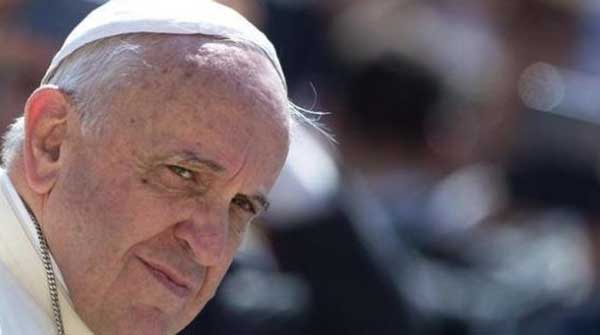 Politicians would love to have the approval ratings of Pope Francis. His popularity crosses party lines and spills over the borders of the tiny state he heads. The spiritual leader of the Catholic Church may be the most influential and galvanizing leader on the world stage. But leadership traits alone cannot fully explain the Francis effect.
Politicians would love to have the approval ratings of Pope Francis. His popularity crosses party lines and spills over the borders of the tiny state he heads. The spiritual leader of the Catholic Church may be the most influential and galvanizing leader on the world stage. But leadership traits alone cannot fully explain the Francis effect.
Francis is a case study in leadership; he has every attribute that shows up on checklists for good leaders. He is willing to take risks and to effect change. He delegates and allows people to do their jobs. He seeks advice from different voices, including dissenting ones. He will act unilaterally if necessary. He puts the good of the organization first. And, while good leaders are accessible, Francis finds novel ways to be present for people. He leads by example.
Politicians share many of these traits. Yet, as we are seeing during this election campaign, here at home as well as south of the border, few politicians enjoy the same level of popularity as the pope. In my view, this is because leadership cannot be boiled down to a checklist of behaviours.
Leadership requires more than mastery of a set of skills. Outstanding leaders also communicate through words and deeds the type of person they are and the values that inform their life. We might refer to this as the leader’s spirituality.
Apart from all of his leadership qualities, I think that people are attracted to the spirituality of Francis. His humility and respect for others reflect his understanding of service, and his commitment to placing people, not dogma, at the centre of his papacy.
It would be unfair to make a direct comparison between the leadership style of Francis and those individuals presently seeking the top job in the nation. After all, Francis does not have to worry about getting elected or coming up with a platform that appeals to a majority of voters. But there is one page from his playbook that national party leaders might consider imitating.
Playing politics as an expression of personal identity by Pat Murphy
Francis inherited a church rife with problems. He identified one of these problems as clericalism, the focus on privilege, status and power that separates priests from the people they are supposed to serve. One way to combat the tendency towards clericalism is to take on the smell of sheep. “Priests”, said Francis, “should be shepherds living with the smell of sheep.”
Our national party leaders say they walk and talk with ordinary Canadians. They speak eloquently about what the average Canadian thinks. Each of them would have us believe that he alone has the pulse of the nation. But it is obvious from watching the televised coverage of the leaders’ tour that no one is taking on the multitude of smells that permeate the pasture.
The majority of people who attend the campaign events are party faithful. In fact, some events are by invitation only. Campaign organizers carefully select the individuals who stand adoringly behind the leader, nodding in agreement as he presents his platform and denigrates the platform of the other guys.
The political backdrop of faces sends a visual message of diversity and support for the leader. The group is there to make the leader seem like one of us, to humanize him and the party’s policies, and to persuade us to enter their sheepfold.
Our national party leaders are accustomed to the smell of their own sheep pen. That is not necessarily bad, but it limits perspective. Leaders may miss the bleating of dissonant voices with good ideas, voices that could help the country become more prosperous and equitable.
This hanging around at the centre of one’s pen does not end with the campaign. It makes it way into government in the form of partisanship.
The centre of the sheep pen does not afford a complete view of the farm, or the pastures beyond. As Francis observed while visiting a parish at the edge of Rome shortly after he became pope, “We understand reality better not from the centre, but from the outskirts
In an election campaign, party leaders try to convince voters that their party has the best ideas. After the election, the top dog would do well to seek perspectives and incorporate worthy ideas that come from outside the party fold.
Louise McEwan has degrees in English and Theology. She has a background in education and faith formation.
[Louise is a Troy Media Thought Leader. Why aren’t you?
The views, opinions and positions expressed by columnists and contributors are the author’s alone. They do not inherently or expressly reflect the views, opinions and/or positions of our publication.
